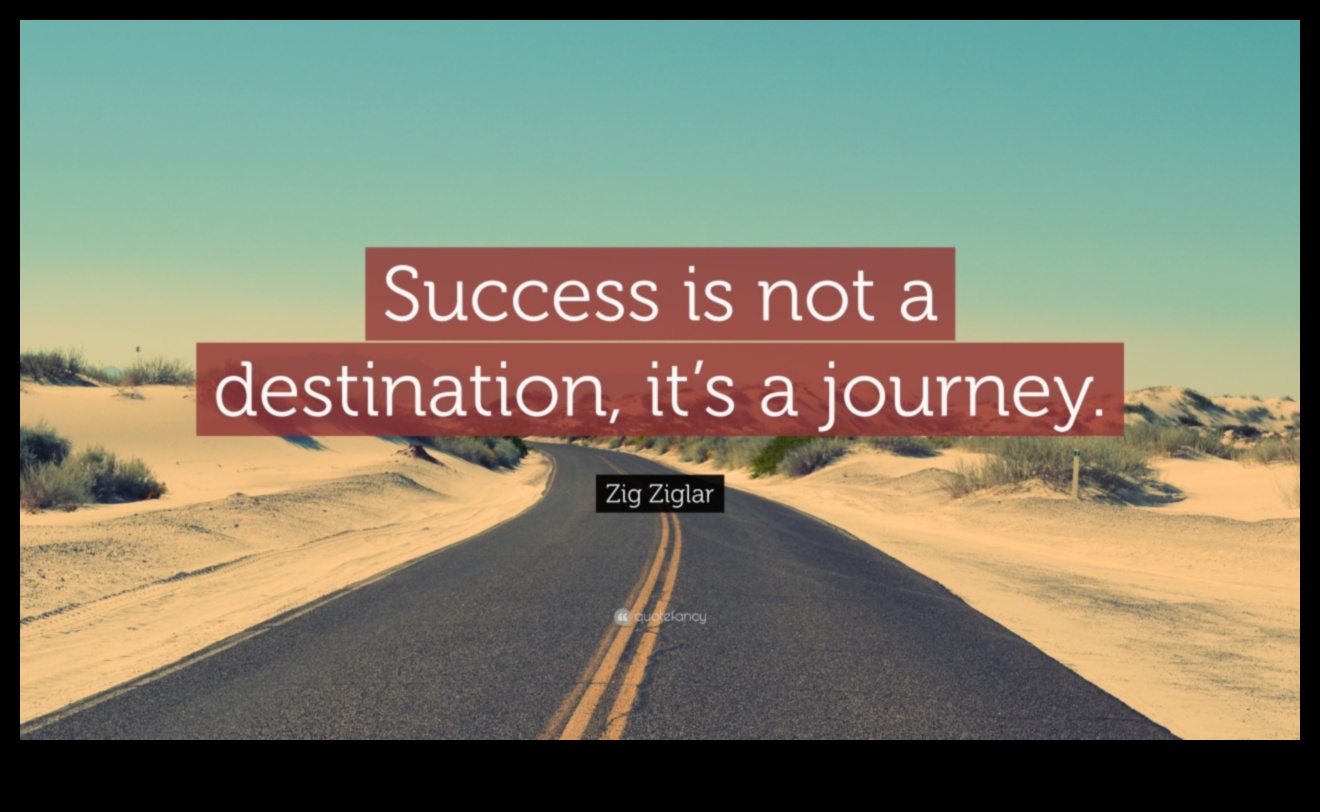
Beyond Graduation: Mapping Career Paths Post-University
This guide will help you to choose a career path after graduating from university.
We will discuss the different types of career paths, how to choose a path that is right for you, and how to create a career plan.
Types of Career Paths
There are many different types of career paths that you can choose after graduating from university.
Some of the most common include:
- Corporate careers
- Government careers
- Non-profit careers
- Entrepreneurial careers
- Freelance careers
How to Choose a Career Path
Choosing a career path can be a difficult decision.
There are many factors to consider, such as your interests, skills, and values.
Here are some tips for choosing a career path that is right for you:
- Do your research.
- Talk to your friends, family, and mentors.
- Take career assessments.
- Shadow professionals in different fields.
- Internship.
How to Create a Career Plan
Once you have chosen a career path, it is important to create a career plan.
Your career plan should outline your goals, the steps you need to take to achieve them, and the timeline you are working with.
Here are some tips for creating a career plan:
- Set goals.
- Create a timeline.
- Identify the steps you need to take.
- Stay motivated.
How to Stay on Track with Your Career Plan
It is important to stay on track with your career plan, even when things get tough.
Here are some tips for staying on track:
- Review your plan regularly.
- Adjust your plan as needed.
- Stay motivated.
- Get support from others.
How to Deal with Setbacks in Your Career
Everyone experiences setbacks in their career.
It is important to know how to deal with setbacks in a positive way.
Here are some tips for dealing with setbacks:
- Don’t give up.
- Learn from your mistakes.
- Reframe the setback as an opportunity.
- Seek support from others.
How to Change Careers
Sometimes, you may decide that you want to change your career.
Changing careers can be a daunting task, but it is definitely possible.
Here are some tips for changing careers:
- Do your research.
- Talk to your friends, family, and mentors.
- Take career assessments.
- Shadow professionals in different fields.
- Internship.
How to Advance in Your Career
There are many ways to advance in your career.
Some of the most common ways include:
- The educational requirements for the job
- The salary potential for the job
- The job outlook for the job
- The work environment for the job
- Technical career paths
- Business career paths
- Creative career paths
- Social service career paths
- Healthcare career paths
- Review your career plan regularly and make adjustments as needed.
- Set goals for yourself and track your progress towards them.
- Stay motivated by reminding yourself of your goals and why you are pursuing them.
- Seek out support from friends, family, and mentors.
- Don’t dwell on it. It’s okay to feel disappointed or frustrated after a setback, but don’t let it consume you.
- Learn from your mistakes. Every setback is an opportunity to learn and grow.
- Don’t give up. It’s important to stay positive and focused on your goals.
- Seek support from friends, family, or a therapist. Talking about your setback can help you to process it and move on.
- Do your research. Before you make any decisions, it’s important to do your research and figure out what you want to do. What are your interests? What are your skills? What kind of work environment do you want to be in?
- Network. One of the best ways to find a new job is to network with people in your field. Attend industry events, join professional organizations, and reach out to people you know who are working in your desired field.
- Get experience. If you don’t have any experience in your desired field, you may need to get some experience before you can land a job. This could mean volunteering, taking on a side project, or starting your own business.
- Update your resume and LinkedIn profile. Make sure your resume and LinkedIn profile are up-to-date and reflect your skills and experience.
- Start applying for jobs. Once you’re ready, start applying for jobs in your desired field. Be prepared to tailor your resume and cover letter to each job you apply for.
- Be patient. Changing careers can take time. Don’t get discouraged if you don’t get a job right away. Keep applying for jobs and networking, and eventually you’ll find the right opportunity.
- Get more education and training
- Gain experience in your field
- Network with people in your industry
- Take on challenging projects
- Seek out opportunities for leadership
- Become an expert in your field
- Stay up-to-date on the latest trends
- Be willing to change jobs
- Set clear goals and objectives
- Create a plan to achieve your goals
- Be persistent and never give up
- Be positive and believe in yourself
- Be grateful for your successes and learn from your failures
- Vertical career path: This is a path where a person moves up through the ranks of a single company, typically by taking on more responsibility and earning higher salaries.
- Horizontal career path: This is a path where a person stays at the same level of responsibility but moves from one company to another, typically to gain new skills and experience.
- Diagonal career path: This is a path where a person moves between different industries or functions, typically to gain a broader perspective and experience.
- Do your research. Learn about different career paths and the skills and education required for each one.
- Talk to people who are working in your field of interest. Ask them about their work, their career path, and their advice for you.
- Take some time to reflect on your interests, skills, values, and personality. What are you passionate about? What are you good at? What are your values? What kind of work environment do you thrive in?
| Topic | Features |
|---|---|
| Career planning | How to choose a career path, create a career plan, stay on track with your plan, deal with setbacks, change careers, advance in your career |
| Career path | Types of career paths, how to choose a career path |
| College graduate | How to find a job after college, prepare for a job search |
| Job search | How to find a job, write a resume, interview skills |
| Post-graduation | How to transition to life after college, find a job, start your career |

II. What is a career path?
A career path is a long-term plan for your professional life. It includes your goals, interests, and skills, and it helps you to make decisions about your education, training, and employment.
There are many different ways to create a career path. You can start by thinking about your interests and skills. What do you enjoy doing? What are you good at? Once you have a good understanding of your interests and skills, you can start to research different career options.
When you are researching different career options, it is important to consider the following factors:
Once you have considered all of these factors, you can start to make decisions about your education, training, and employment.
It is important to remember that your career path is not set in stone. You can change your mind at any time, and you can always make adjustments to your plan. The important thing is to stay focused on your goals and to keep moving forward.
III. Types of career paths
There are many different types of career paths that you can choose from. Some of the most common include:
Each type of career path has its own unique set of skills and requirements. It’s important to do your research and find a career path that is a good fit for your skills, interests, and personality.

IV. How to choose a career path
Choosing a career path can be a daunting task, but it is an important one. Your career path will shape your life for many years to come, so it is important to make a decision that you are happy with.
There are a few things to consider when choosing a career path. First, you need to think about your interests and skills. What do you enjoy doing? What are you good at? Once you have a good understanding of your interests and skills, you can start to narrow down your options.
Next, you need to think about your values. What is important to you in a career? Do you want to make a difference in the world? Do you want to work for a company that you believe in? Your values can help you to make decisions about which careers are a good fit for you.
Finally, you need to think about your financial goals. What kind of salary do you want to earn? How much money do you need to save for retirement? Your financial goals can help you to narrow down your options and make a decision that is right for you.
Choosing a career path is not an easy decision, but it is an important one. By taking the time to consider your interests, skills, values, and financial goals, you can make a decision that you are happy with and that will set you up for success.

V. How to create a career plan
A career plan is a roadmap that will help you achieve your career goals. It is a tool that you can use to track your progress, stay motivated, and make informed decisions about your career.
There are many different ways to create a career plan, but the following steps will get you started:
1. Identify your goals. What do you want to achieve in your career? What are your long-term goals? Your short-term goals?
2. Research your options. What are the different career paths that are available to you? What are the requirements for each path? What are the job prospects?
3. Develop a plan. Once you have identified your goals and researched your options, you can start to develop a plan for achieving your goals. Your plan should include specific steps that you need to take to reach each goal.
4. Track your progress. As you work on your career plan, it is important to track your progress. This will help you to stay motivated and make sure that you are on track to achieve your goals.
5. Stay flexible. Your career plan is not set in stone. It is important to be flexible and adapt your plan as needed. Your goals may change, or you may learn about new opportunities that you want to pursue.
Creating a career plan is an important step in taking control of your career. By following these steps, you can create a plan that will help you achieve your goals.

VI. How to stay on track with your career plan
Once you have created a career plan, it is important to stay on track with it. Here are a few tips for staying on track:
By following these tips, you can increase your chances of achieving your career goals.
VII. How to deal with setbacks in your career
Everyone experiences setbacks in their career at some point. It’s important to know how to deal with them in a healthy way so that they don’t derail your progress.
Here are a few tips for dealing with setbacks in your career:
Remember, setbacks are a normal part of life. If you can learn to deal with them in a healthy way, you’ll be better equipped to achieve your career goals.
How to change careers
Changing careers can be a daunting task, but it can also be an incredibly rewarding one. If you’re feeling stuck in your current job, or if you’re simply looking for a new challenge, changing careers can be a great way to find new opportunities and pursue your passions.
Here are a few tips for changing careers:
Changing careers can be a challenging process, but it can also be an incredibly rewarding one. If you’re feeling stuck in your current job, or if you’re simply looking for a new challenge, don’t be afraid to change careers. With some hard work and dedication, you can achieve your goals.
There are many ways to advance in your career. Some of the most common include:
It’s important to remember that there is no one-size-fits-all approach to career advancement. What works for one person may not work for another. The key is to find what works for you and to keep working hard to achieve your goals.
Here are some additional tips for advancing in your career:
By following these tips, you can increase your chances of advancing in your career and achieving your goals.
X. FAQ
Here are three common questions about career paths and their answers:
Question 1: What is a career path?
A career path is a sequence of jobs or positions that a person holds over the course of their career. It can be thought of as a roadmap that guides a person’s professional development.
Question 2: What are the different types of career paths?
There are many different types of career paths, but some of the most common include:
Question 3: How do I choose a career path?
There are many factors to consider when choosing a career path, including your interests, skills, values, and personality. Here are a few tips for choosing a career path that’s right for you: